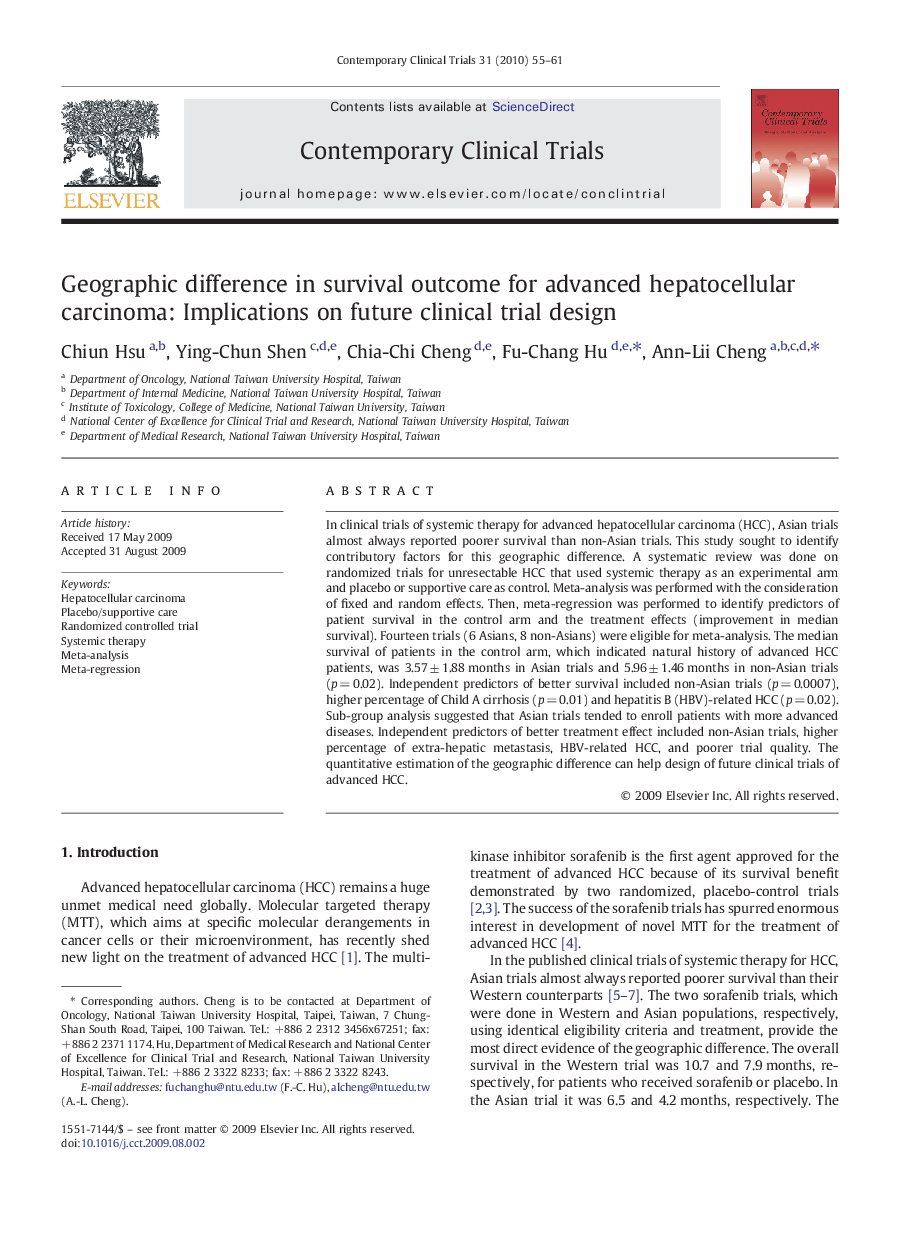| Article ID | Journal | Published Year | Pages | File Type |
|---|---|---|---|---|
| 3463135 | Contemporary Clinical Trials | 2010 | 7 Pages |
In clinical trials of systemic therapy for advanced hepatocellular carcinoma (HCC), Asian trials almost always reported poorer survival than non-Asian trials. This study sought to identify contributory factors for this geographic difference. A systematic review was done on randomized trials for unresectable HCC that used systemic therapy as an experimental arm and placebo or supportive care as control. Meta-analysis was performed with the consideration of fixed and random effects. Then, meta-regression was performed to identify predictors of patient survival in the control arm and the treatment effects (improvement in median survival). Fourteen trials (6 Asians, 8 non-Asians) were eligible for meta-analysis. The median survival of patients in the control arm, which indicated natural history of advanced HCC patients, was 3.57 ± 1.88 months in Asian trials and 5.96 ± 1.46 months in non-Asian trials (p = 0.02). Independent predictors of better survival included non-Asian trials (p = 0.0007), higher percentage of Child A cirrhosis (p = 0.01) and hepatitis B (HBV)-related HCC (p = 0.02). Sub-group analysis suggested that Asian trials tended to enroll patients with more advanced diseases. Independent predictors of better treatment effect included non-Asian trials, higher percentage of extra-hepatic metastasis, HBV-related HCC, and poorer trial quality. The quantitative estimation of the geographic difference can help design of future clinical trials of advanced HCC.
